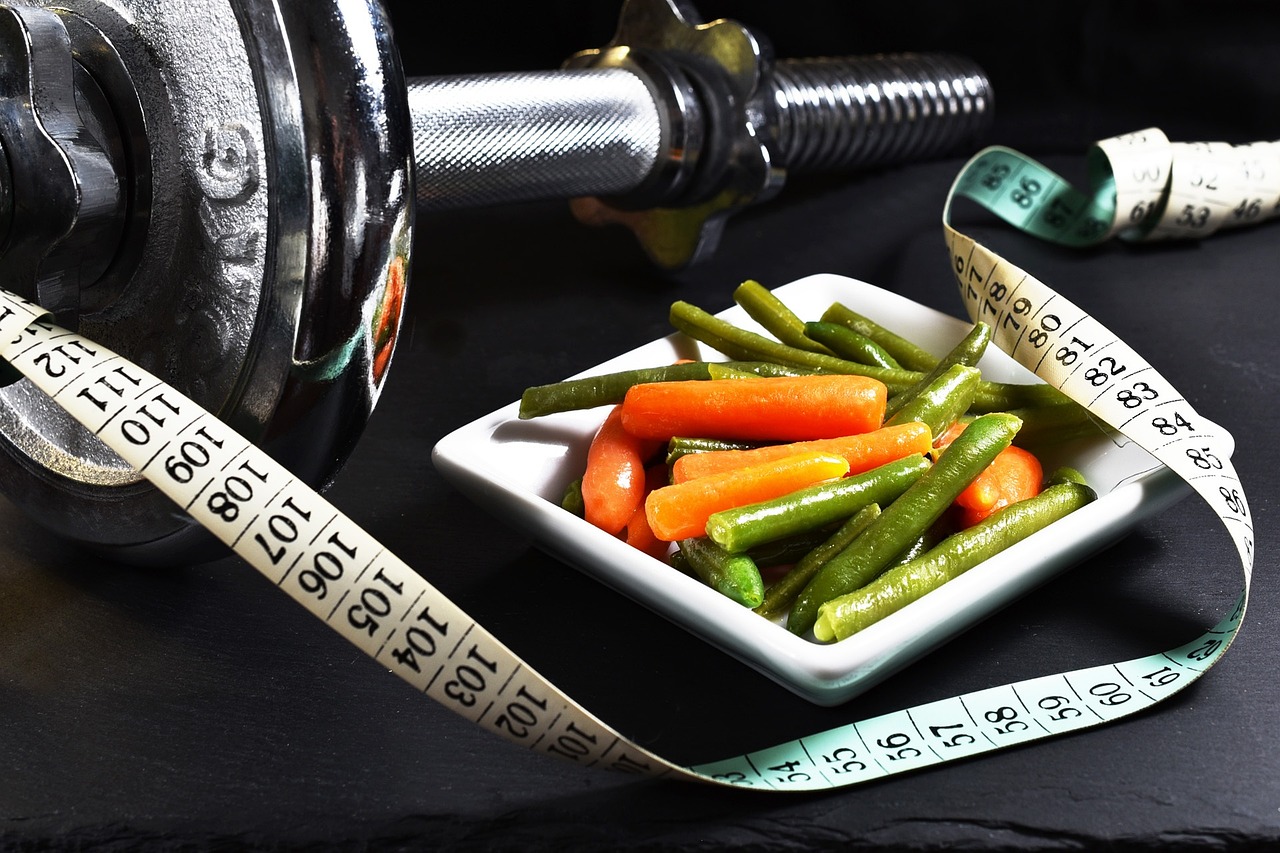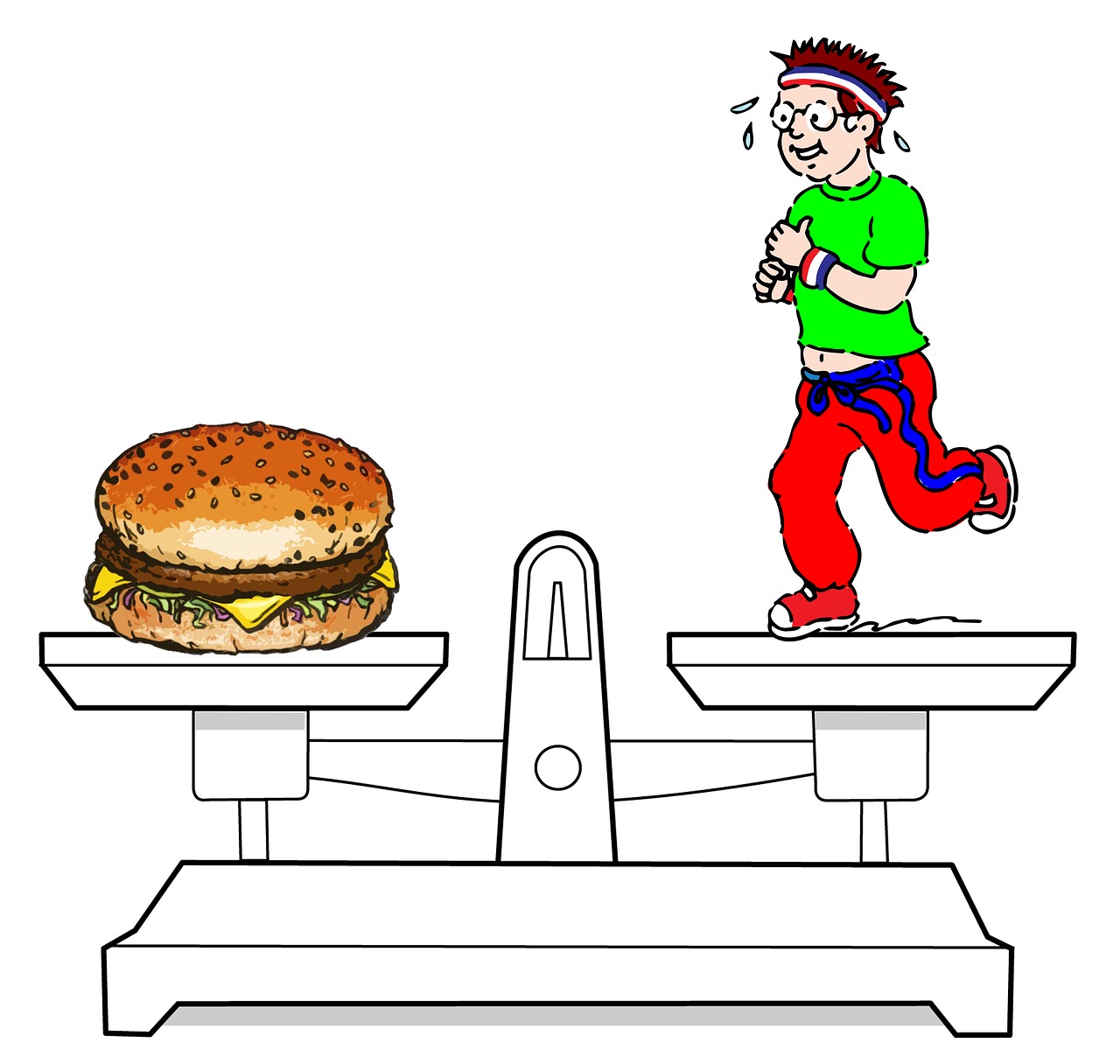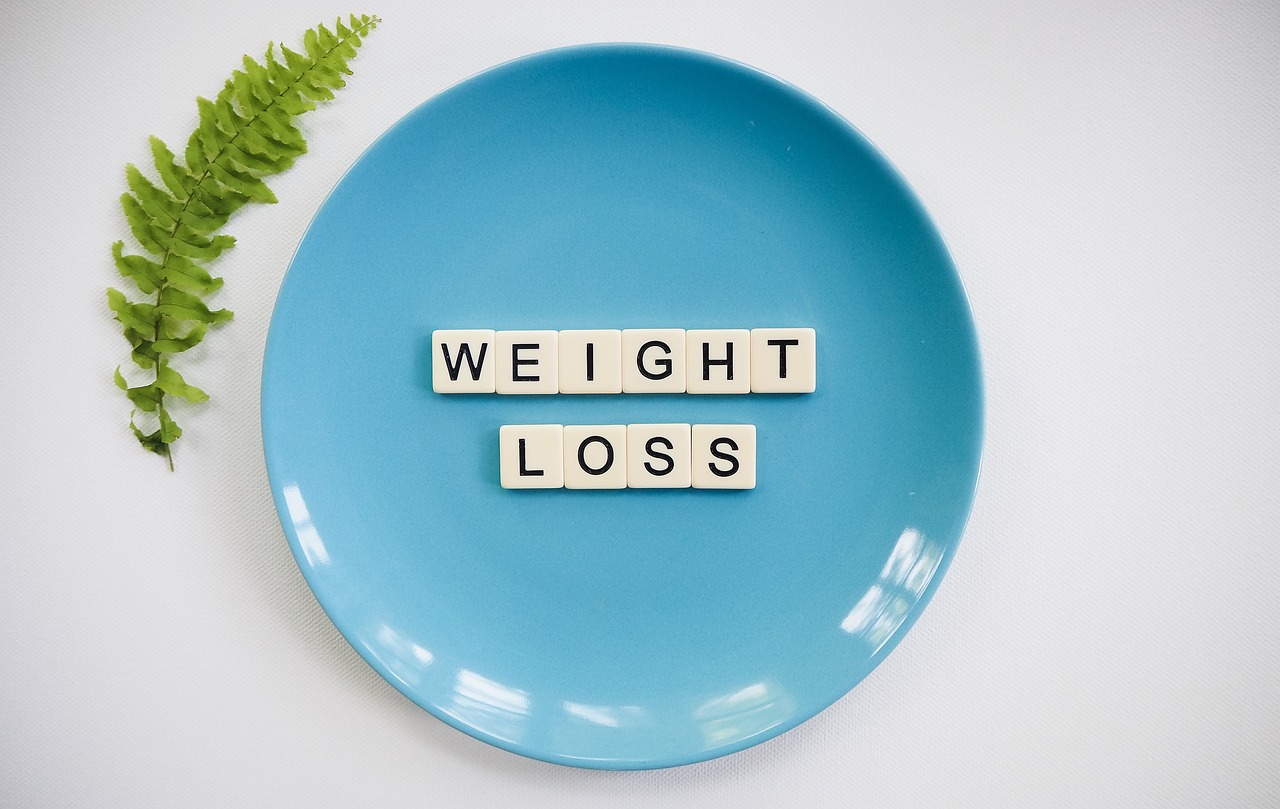Are you looking for ways to boost your metabolism? Look no further, as we explore how you can naturally increase your metabolism to help you achieve your fitness goals. Recent scientific studies have shed light on the relationship between metabolism and various factors such as diet, exercise, and sleep. In a study published in the Journal of Applied Physiology, researchers found that high-intensity interval training (HIIT) can significantly increase metabolic rate, even after exercise. Another study published in the American Journal of Clinical Nutrition revealed that consuming green tea can enhance metabolism and promote weight loss. These studies provide valuable insights into effective methods of increasing metabolism, allowing you to make informed choices to support your overall health and well-being.

Discover the Ultimate Weight Loss Secrets Here!
Maintain a Healthy Weight
When it comes to maintaining a healthy weight, it’s important to focus on two key factors: eating a balanced diet and engaging in regular physical activity. Eating a balanced diet means consuming a variety of foods from different food groups, including fruits, vegetables, whole grains, lean meats, and dairy products. By incorporating a wide range of nutrients into your diet, you can ensure that your body is getting the necessary fuel it needs to function properly.
In addition to eating a balanced diet, engaging in regular physical activity is essential for maintaining a healthy weight. Physical activity not only helps burn calories, but it also boosts your metabolism, which can help you maintain a healthy weight or even lose weight if necessary. Aim for at least 150 minutes of moderate-intensity aerobic activity or 75 minutes of vigorous-intensity aerobic activity per week, along with strength training exercises at least twice a week to maintain a healthy weight.
Stay Hydrated
Staying hydrated is another important aspect of maintaining a healthy metabolism. Drinking enough water throughout the day is essential for overall health and well-being. Water helps regulate body temperature, aids digestion, lubricates joints, and carries nutrients to cells.
When it comes to staying hydrated, it’s important to focus on consuming adequate amounts of water and limiting sugary drinks. While it’s tempting to reach for sugary beverages like soda or energy drinks, these can contribute to weight gain and may negatively impact your metabolism. Instead, opt for water as your primary beverage and flavor it with slices of citrus fruits or herbs for added taste.
Click Here for Proven Fat-Burning Strategies!
Eat Protein-Rich Foods
Including protein-rich foods in your diet is crucial for boosting your metabolism. Protein is known to have a higher thermic effect than other macronutrients, which means that your body burns more calories digesting and processing protein-rich foods. As a result, including lean meats, fish, dairy products, and plant-based protein sources like beans and legumes in your meals can help increase your metabolism.
Recent scientific studies have shown that a high protein diet can significantly increase metabolism and promote weight loss. In one study published in the American Journal of Clinical Nutrition, researchers found that a high protein diet increased calorie expenditure by nearly 100 calories per day. Another study published in the Journal of the International Society of Sports Nutrition found that consuming protein before bed can enhance metabolic rate and muscle protein synthesis during sleep.
Don’t Skip Meals
Skipping meals may seem like an easy way to save calories, but it can actually have a negative impact on your metabolism. When you skip meals, your body’s metabolism slows down to conserve energy, making it harder for you to burn calories efficiently. Additionally, skipping meals can lead to overeating later in the day, as you may feel excessively hungry and make less healthy food choices.
Instead of skipping meals, focus on incorporating regular and balanced meals into your daily routine. Start your day with a nutritious breakfast to jumpstart your metabolism and provide your body with the fuel it needs to function optimally. Aim for frequent small meals throughout the day to keep your metabolism active and prevent feelings of extreme hunger.

Incorporate Strength Training
Strength training is an excellent way to boost your metabolism and maintain a healthy weight. When you engage in strength training exercises, such as lifting weights or using resistance bands, you build lean muscle mass. Muscle tissue burns more calories at rest compared to fat tissue, which means that the more muscle you have, the higher your resting metabolic rate will be.
If you’re new to strength training, consider joining a strength training class or hiring a personal trainer who can guide you through proper form and technique. It’s important to start with lighter weights and gradually increase the intensity as you build strength. Aim for two to three strength training sessions per week to see the benefits in your metabolism and overall body composition.
Perform High-Intensity Interval Training (HIIT)
High-Intensity Interval Training (HIIT) is a popular form of exercise that can significantly increase your metabolism. HIIT involves short bursts of intense exercise followed by brief recovery periods. This type of workout not only burns a significant amount of calories during the exercise session but also leads to an increased metabolic rate for hours after the workout.
Studies have shown that HIIT can effectively increase metabolism and promote fat loss. In a study published in the Journal of Obesity, researchers found that participants who performed HIIT workouts three times per week for 12 weeks experienced a significant reduction in body fat and an increase in resting metabolic rate.
To incorporate HIIT into your routine, try incorporating exercises like sprints, burpees, or jump squats for 30 seconds, followed by 10 to 15 seconds of rest. Repeat this cycle for a total of 15 to 20 minutes, gradually increasing the intensity and duration as your fitness level improves.

Manage Stress Levels
Stress can have a profound impact on your metabolism. When you’re stressed, your body produces higher levels of the hormone cortisol, which can increase appetite, lead to cravings for high-calorie foods, and slow down metabolism. Additionally, chronic stress can lead to hormonal imbalances that negatively affect metabolism and weight management.
To manage stress levels and support a healthy metabolism, it’s important to incorporate relaxation techniques into your daily routine. Practices such as deep breathing exercises, yoga, meditation, and mindfulness can help reduce stress and promote overall well-being. Engaging in stress-reducing activities like spending time in nature, practicing hobbies, or spending quality time with loved ones can also have a positive impact on your metabolism.
Drink Green Tea
Green tea has long been known for its potential benefits in boosting metabolism. It contains compounds called catechins, which have been shown to increase fat oxidation and improve insulin sensitivity. Green tea also contains caffeine, which can temporarily boost your metabolic rate and increase calorie burning.
Enjoying a cup of green tea daily can be a simple and enjoyable way to support your metabolism. If you prefer a stronger dose, consider green tea extracts or supplements. However, it’s important to remember that while green tea may have some metabolic benefits, it should not be seen as a magic solution for weight loss. It’s important to combine green tea consumption with a balanced diet and regular physical activity for optimal results.

Consume Metabolism-Boosting Foods and Beverages
Certain foods and beverages have been found to have metabolism-boosting properties. Spicy foods, for example, contain a compound called capsaicin, which can increase metabolism and enhance fat oxidation. Incorporating spices like cayenne pepper, chili powder, or hot sauce in your meals can give your metabolism a natural boost.
Drinking coffee or tea can also have a positive impact on metabolism. The caffeine in these beverages can temporarily increase your metabolic rate and enhance fat burning. However, it’s important to consume coffee and tea in moderation and avoid adding excessive amounts of sugar or cream, as these can negate the potential metabolic benefits.
Utilizing herbs and spices in your cooking can also contribute to an increased metabolism. Certain herbs and spices, such as ginger, turmeric, and cinnamon, have been shown to have thermogenic properties, meaning they can slightly increase calorie expenditure and boost metabolism. Try incorporating these ingredients into your meals to reap their metabolic benefits.
Get Enough Vitamin D
Vitamin D is an essential nutrient that plays a crucial role in various bodily functions, including metabolism. Recent studies have shown that vitamin D deficiency may be associated with a slower metabolism and increased risk of obesity.
To ensure you’re getting enough vitamin D, it’s important to expose yourself to sunlight regularly. Spending time outdoors, especially during the early morning or late afternoon when the sun is less intense, can help your body naturally produce vitamin D. Additionally, including vitamin D-rich foods in your diet, such as fatty fish, fortified dairy products, and egg yolks, can help support a healthy metabolism. If necessary, consider talking to your healthcare provider about vitamin D supplementation to ensure optimal levels.
In conclusion, increasing your metabolism can be achieved through a combination of healthy lifestyle habits. By maintaining a healthy weight, staying hydrated, eating protein-rich foods, avoiding skipping meals, incorporating strength training and high-intensity interval training, managing stress levels, drinking green tea, consuming metabolism-boosting foods and beverages, and ensuring adequate vitamin D levels, you can support a healthy and efficient metabolism. Remember, consistency is key, and it’s important to find an approach that works well for you and aligns with your individual goals and preferences.

